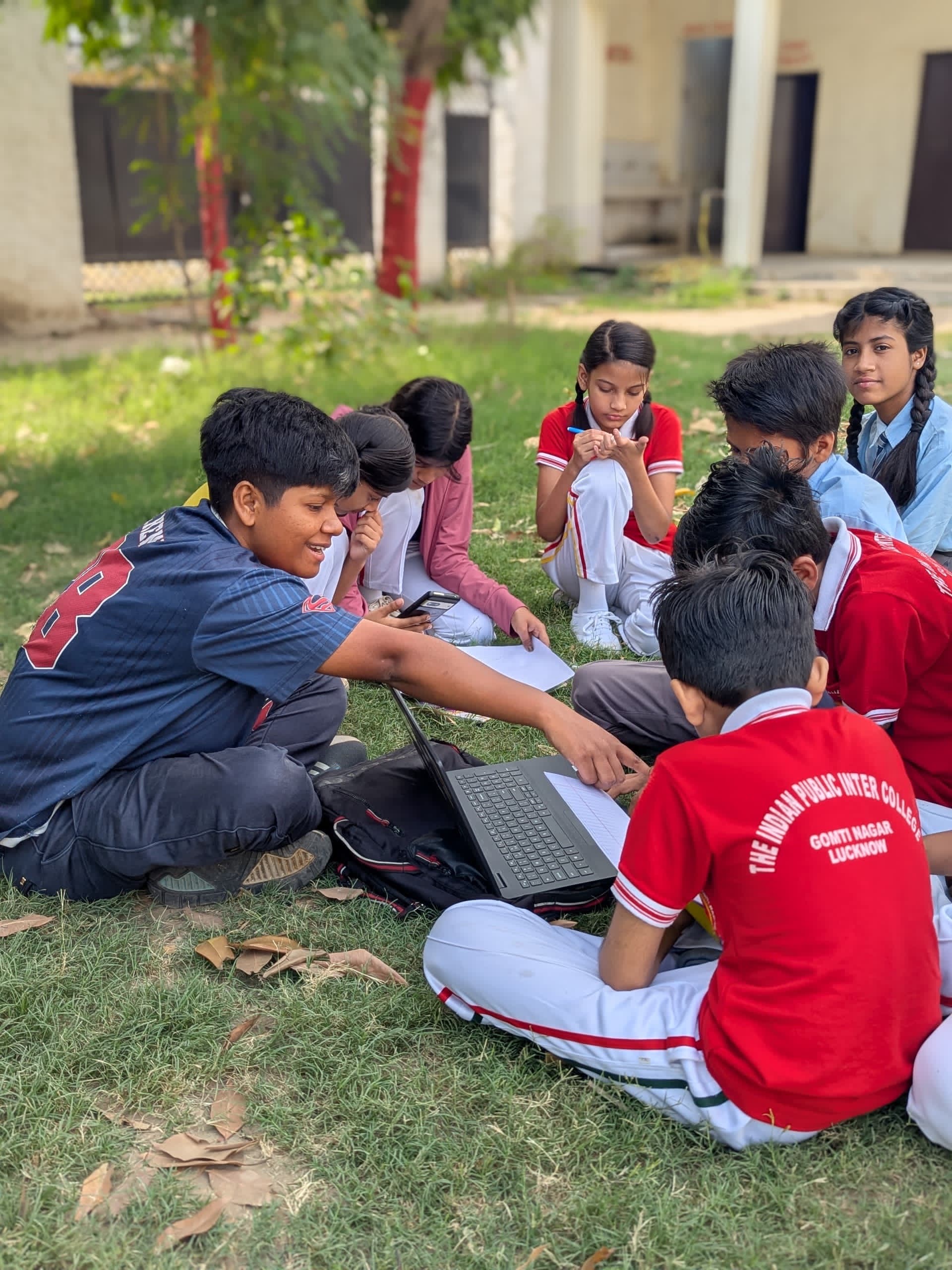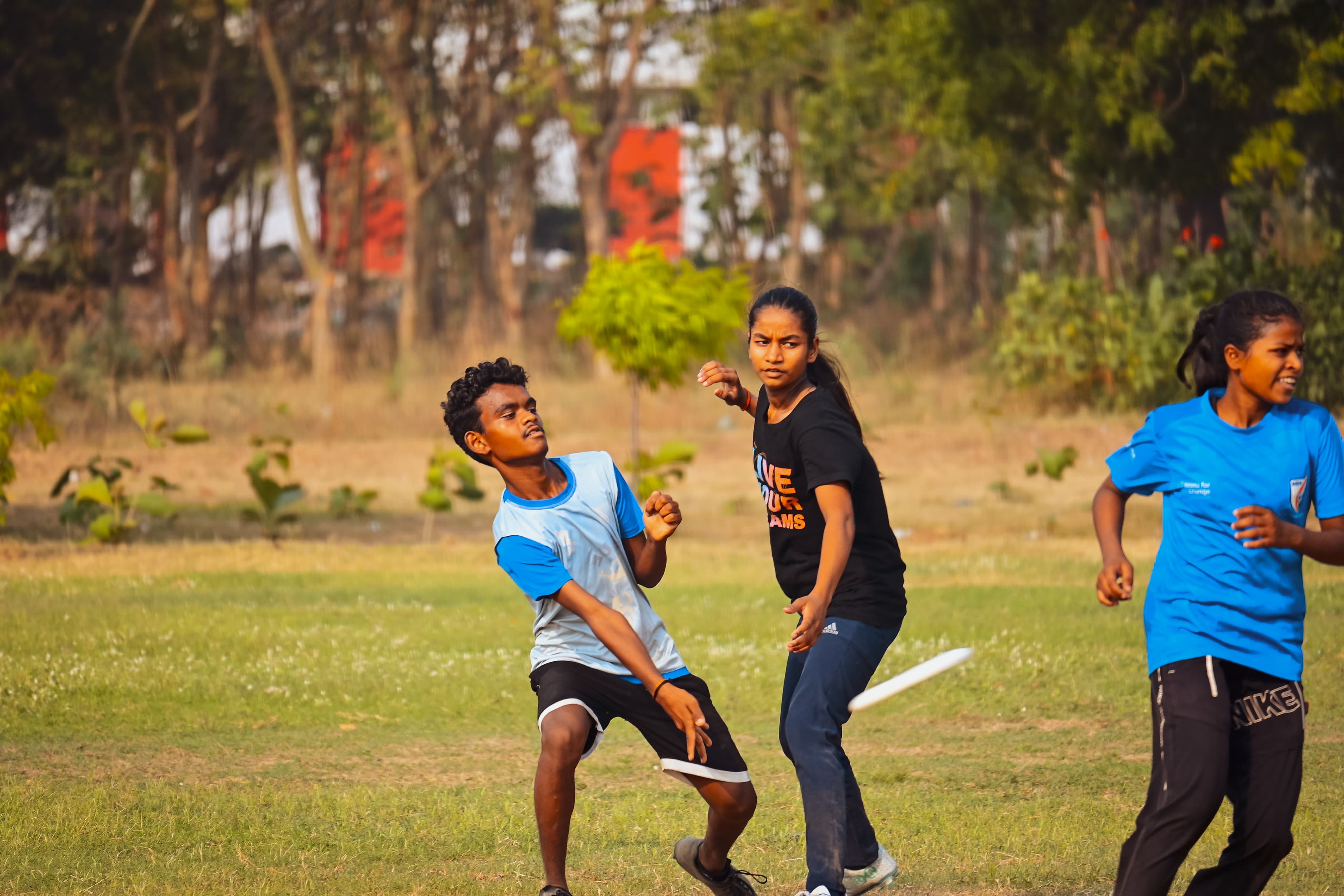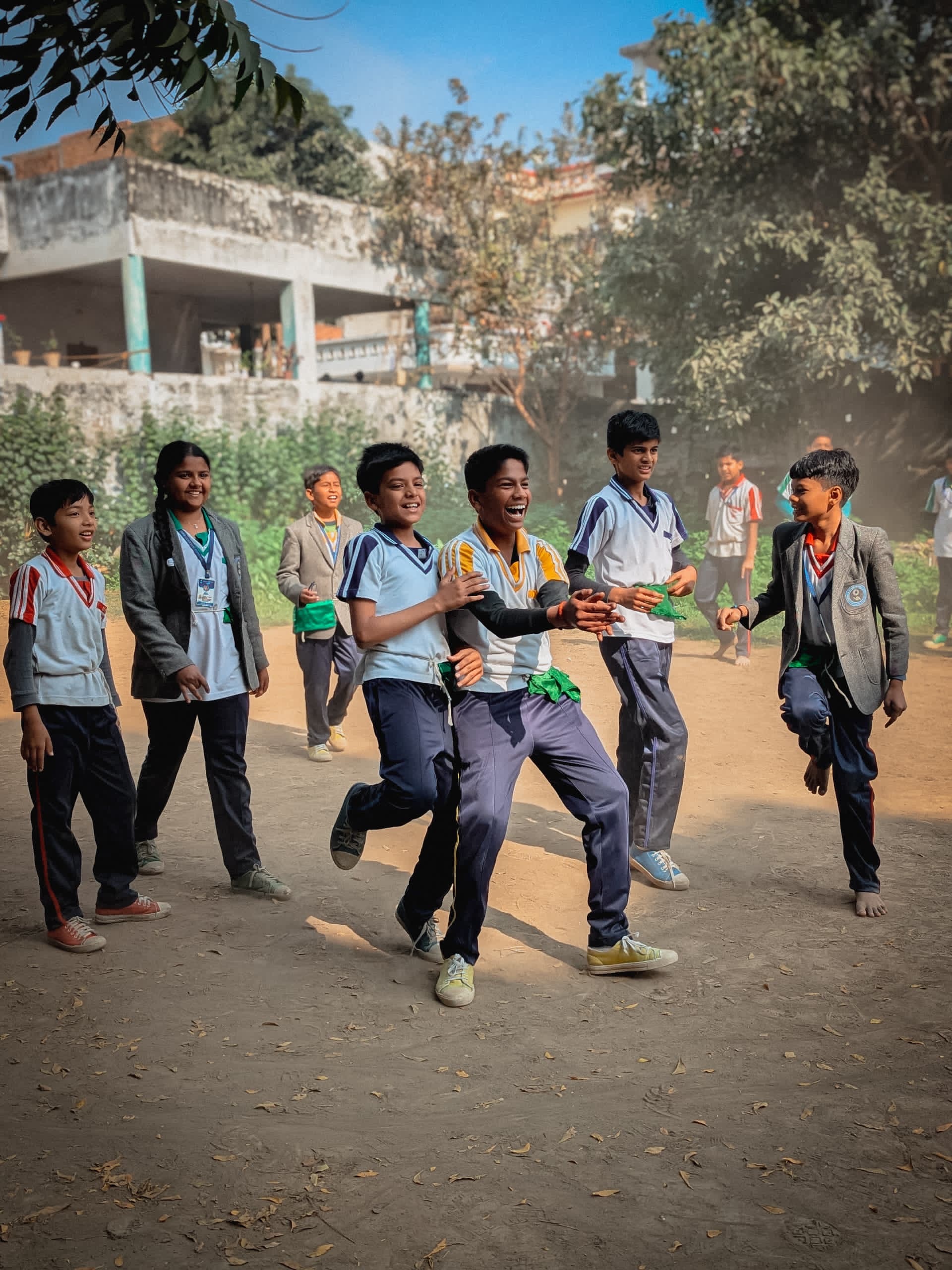In dusty schoolyards and vibrant play spaces across Lucknow, Project KHEL is changing the narrative around what it means to “be a man.” But instead of lectures and textbooks, they use something deceptively simple: play. HerConversation sat down with Swati Das, a former law student turned “PLAYducator”, to understand and reflect on how masculinity, identity, and safe spaces come together. She drops her truth bombs on how real change begins with listening, not labeling.

The Power of Play, and Swati
Swati walked into Project KHEL as an intern. This internship during COVID evolved into a full-time calling. "I thought I was just doing something until my law results came out," she laughs. "But I never went back." Her journey into becoming a PLAYducator, a role she had never heard of before, and one whose credits she gives to Project KHEL- emerged naturally. “Play was always a part of my identity,” she shares, reflecting on her years as a national Handball and Throwball player. But what drew her in was how Project KHEL used play not just for recreation, but as a powerful tool for education and social transformation.
What Even Is Masculinity?
Masculinity isn’t just about behaviours or expectations—it’s a rite of passage,” Swati says. “It’s the journey that society sets up for boys to ‘become men’, and it’s often marked by ideals like being strong, dominant, in control, and not showing too many emotions.”
At Project KHEL, we don’t treat masculinity as something you're born with. It’s something that is shaped by society. And that shaping looks different depending on your caste, class, religion and where you're growing up, and who’s around you. What’s important to remember is that it's not just boys or men who enforce these ideas. It is everyone.
“In our sessions, we see this all the time,” she continues. “Boys take up more space, step up to lead games, and take up leadership positions quite naturally because they’ve been taught that it is their role. At the same time, we see girls hesitate, not take up space and often step back, not because they want to, but because no one before has told them that space belongs to them too.” And that is where Project KHEL steps in.
It is years of conditioning. And that conditioning doesn’t happen in isolation. It happens in our daily lives, at home, around our families, in schools, with our teachers, and friends. Almost everyone plays a part in reinforcing it.
Change Doesn’t Come Through Correction
Instead of telling children what is wrong, Project KHEL invites them to reflect. One powerful example? A game of Kho Kho is modified: children must run with their legs tied to someone else’s. When asked which version was harder, they reflect on the difficulty of dragging another’s weight: drawing a parallel to the societal burdens boys carry in the name of masculinity. Whenever a boy grows up believing that "the women in his household don't do certain things"—especially things related to personal growth or independence—he often ends up carrying the burden of those limitations for the rest of his life. This can manifest in various ways: taking on extra financial responsibilities, handling all the outdoor tasks, constantly having to drop off or pick up family members, and generally overcompensating for what they were taught women can't or shouldn't do. "They already know the pressure," Swati says. "They just don't always recognize it as pressure."

Kindness Over Correction
Project KHEL never labels behaviour as “wrong.” Instead, they notice and praise moments when boys express softer emotions or inclusive behaviors. This positive reinforcement builds empathy organically, without shame.
They avoid gendered language, cheer for everyone equally, and celebrate small wins. A boy tying a rakhi to a girl, and later understanding he can simply be her friend without claiming a protective role, is a win. A group of boys refusing to punish others in a privilege exercise? Another stunning breakthrough.
Girls Stepping Into Their Space, Albeit Slowly
Interestingly, one of the biggest challenges isn’t getting boys to make space—it is getting girls to take it. Swati shares how in a third year of their intervention, even when boys stepped aside, the girls hesitated. "It is hard to step into a space you’ve never been told belongs to you."
And yet, there are sparks of change. Girls cheering for each other. Forming friendships with boys. Slowly, the boundaries begin to blur.
The Bigger Picture: Beyond the Sessions
When the children go home, they return to traditional roles and systems that haven't changed. But Project KHEL’s goal isn’t to force new behavior, it is to spark thought. “We are not here to give answers,” Swati says. “We are here to help children ask better questions.”
They want children to think about who they are, what they do when no one is watching, and how they relate to others. That, they believe, is where real transformation begins.

From Toxic to Tender
Swati admits that before joining Project KHEL, she only associated masculinity with toxicity. “Now I understand the layers,” she reflects. “Masculinity affects men deeply. It limits their choices, stifles their emotions, and traps them in roles they didn’t always choose.” For her, the most radical message isn’t about gender equality—it is about reimagining what strength looks like. “You don’t need to know all the terms, you don’t have to decode masculinity or femininity,” she says. “You just have to understand what love and kindness feel like. And how to offer it.” That, it turns out, is enough to start a revolution.
Project KHEL X HerConversation: Sparking Change, One Story at a Time
At HerConversation, we are invoking meaningful conversations. We trust the process of real change. One that begins with listening to voices from the ground. We invite those who are not just talking about change, but living it. Our collaboration with Project KHEL is a reflection of this very sentiment. Project KHEL uses interactive, play-based methods to teach life skills, gender sensitivity, and leadership to children. In these sessions, children are not passive recipients; they are active participants. Together they help in building empathy, questioning stereotypes, and exploring identity in ways that are both joyful and deeply transformative. HerConversation aims to amplify Project KHEL’s work. We are offering a platform where these powerful stories can reach vast audiences. Sharing their journey is just the beginning; we’re inviting our readers to reflect, engage, and carry these insights into their own lives.